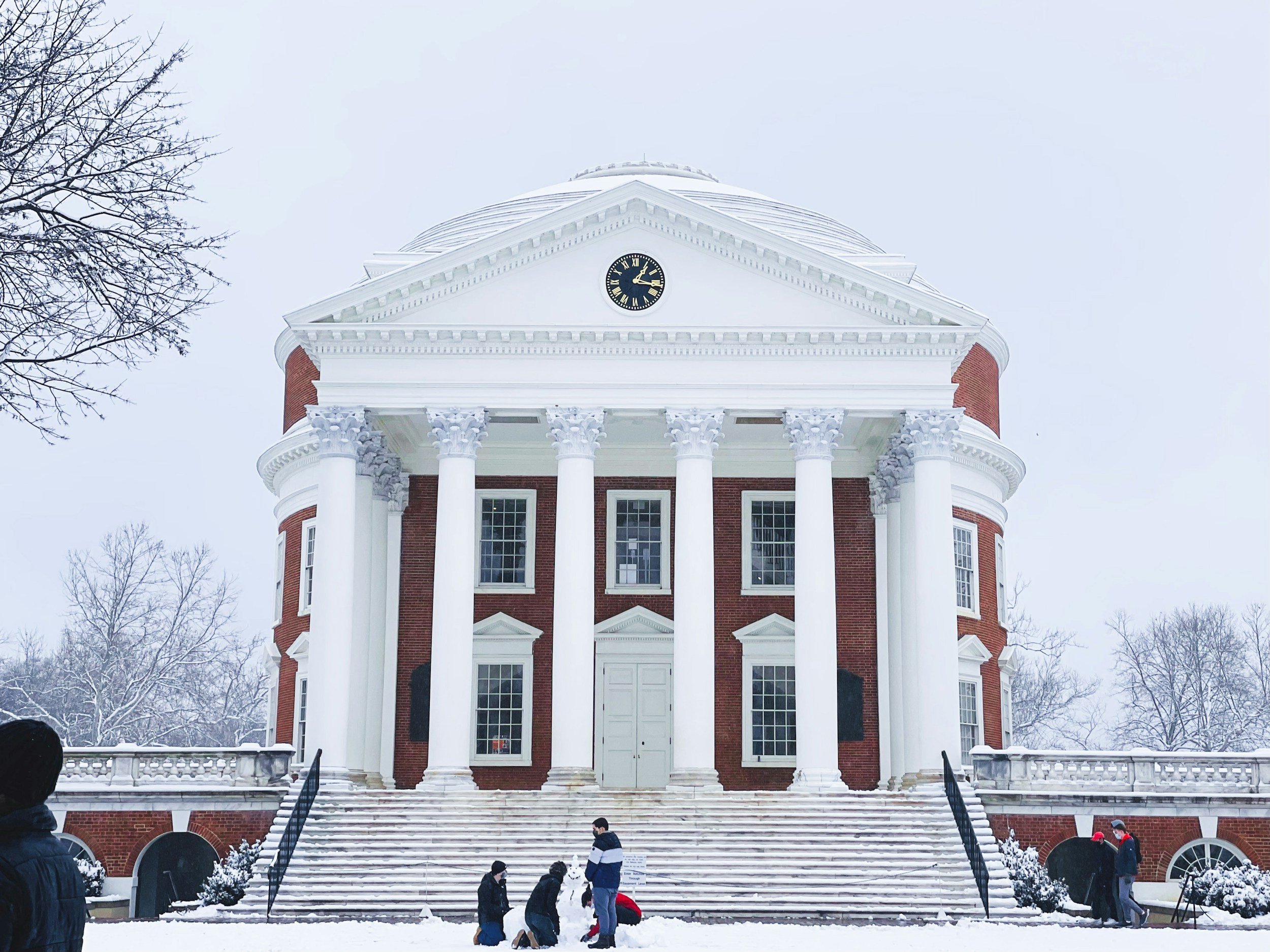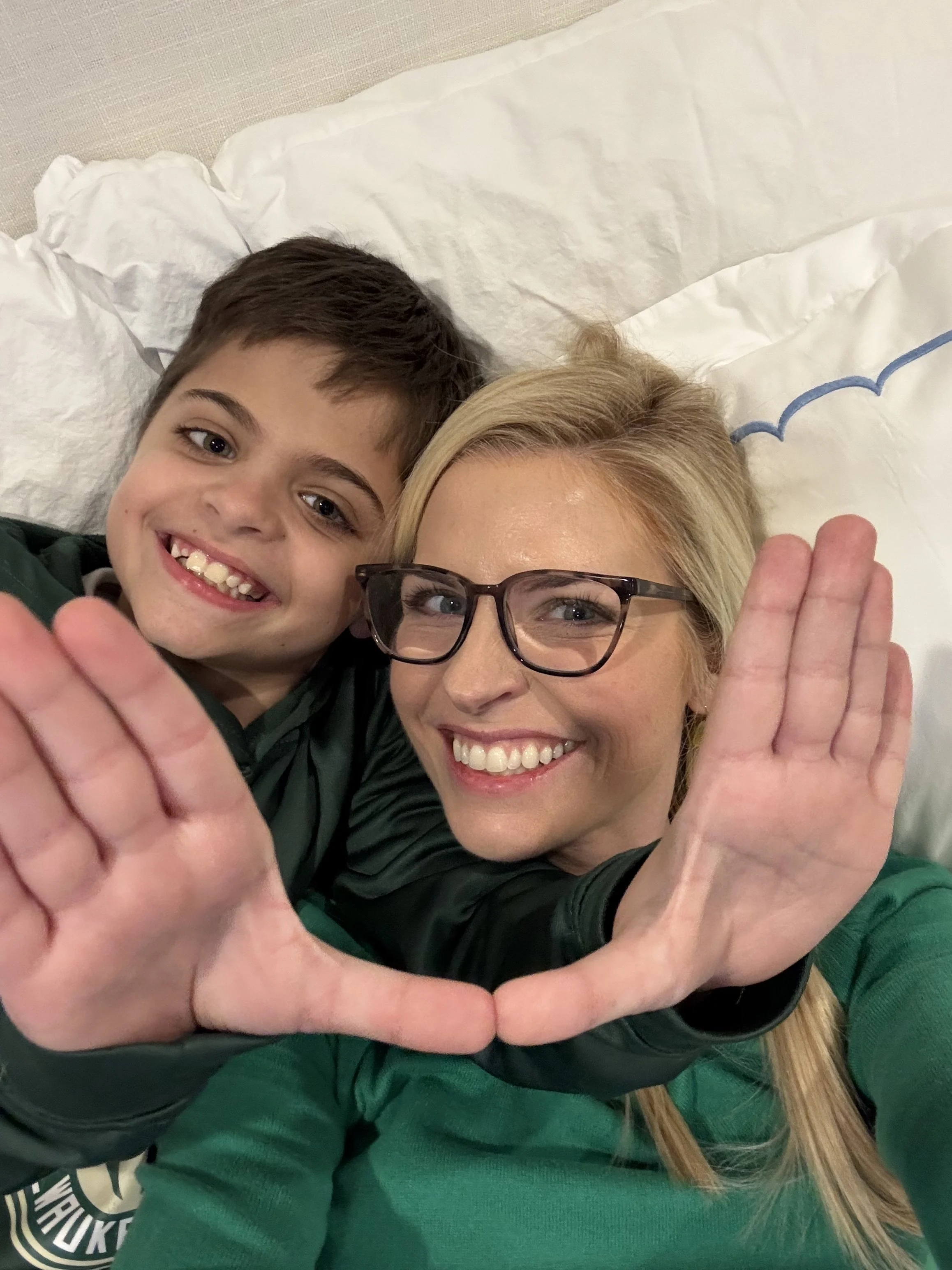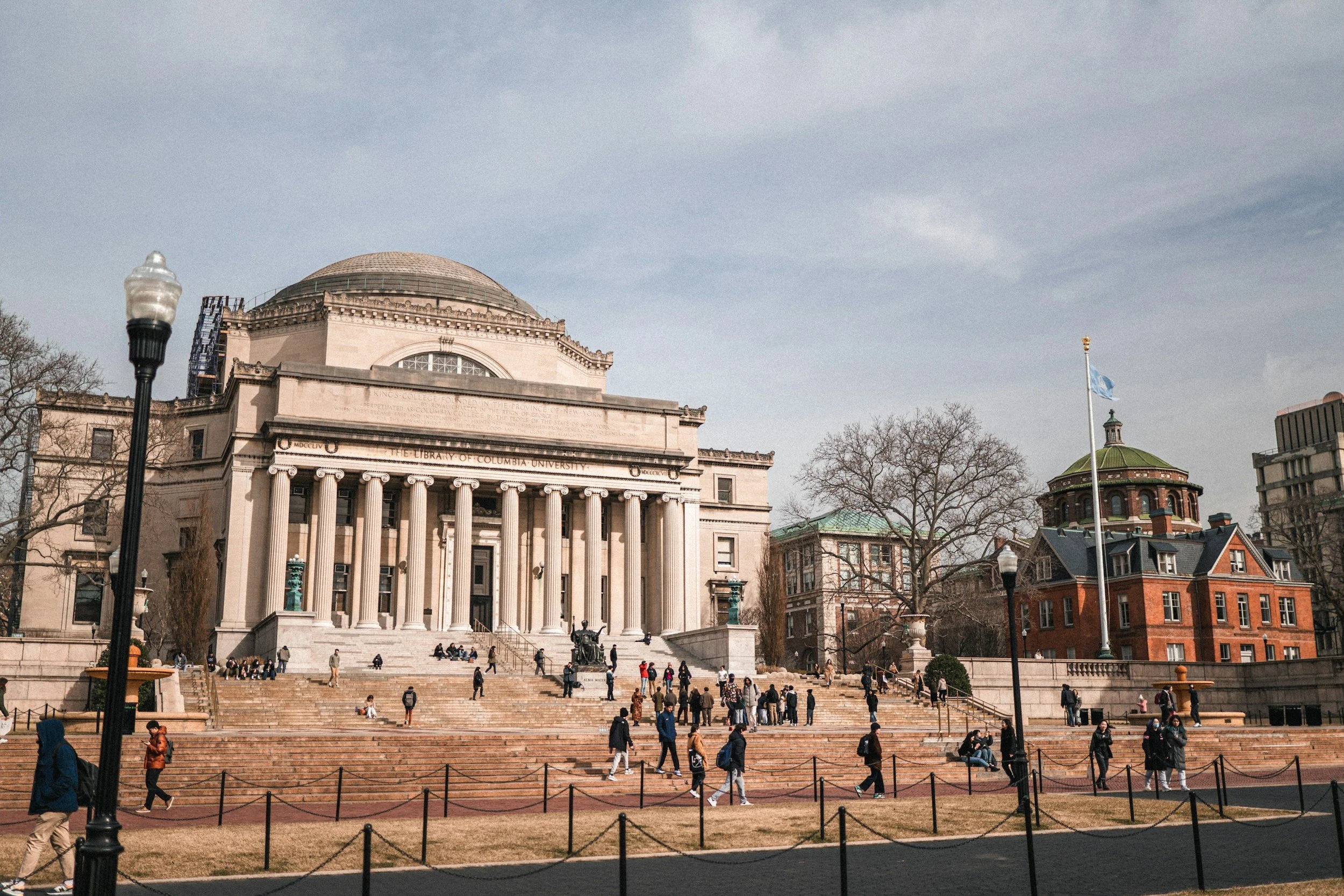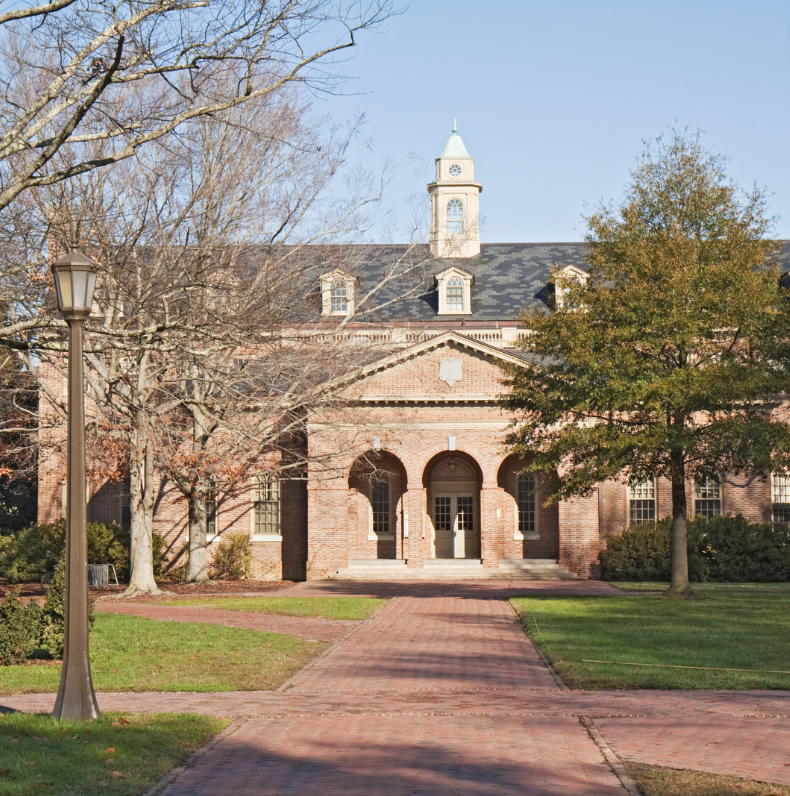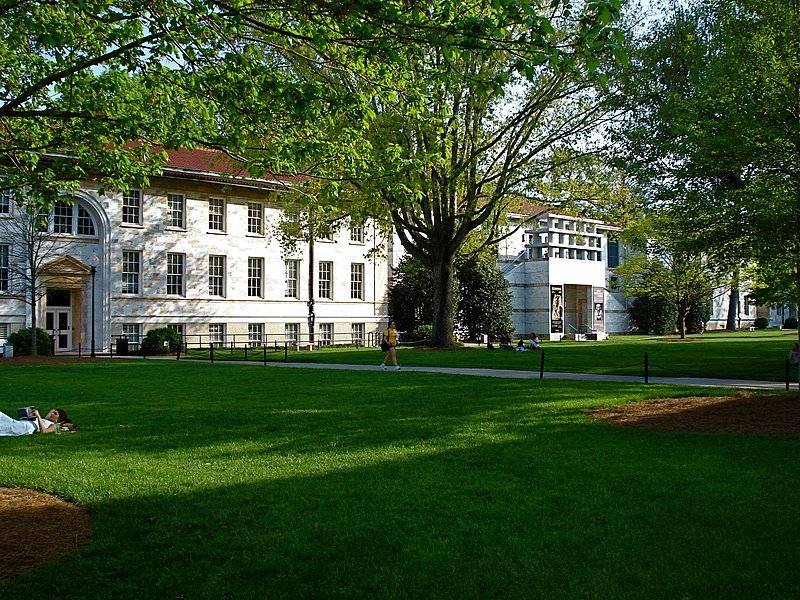Well, it’s been a minute – but our final “late start senior” officially submitted her last application last week, which means we’re back with some (hopefully!) weekly updates.
BIGGEST COLLEGE-RELATED NEWS OF THE WEEK
CHAMPIONSHIP NIGHT IS HERE!
The College Football Playoff National Championship is set for tonight, with the Indiana Hoosiers taking on the Miami Hurricanes for the national title. Indiana enters the game as an eight-point favorite, so it looks like we could be headed for a Hoosiers win. Either way, it’s been a fun postseason to watch!
A SHAKE-UP ON UVA’S BOARD
Just ahead of her inauguration, Virginia Governor Abigail Spanberger asked several members of the University of Virginia Board of Visitors to step down, including Rector Rachel Sheridan, Vice Rector Porter Wilkinson, and major donor Paul Manning. The move cleared the way for Spanberger to quickly appoint new members, effectively shifting the balance of power on the board early in her term.
Not everyone welcomed the change. Some critics argued that Manning, in particular, had played a significant role in UVA’s recent growth and warned that another round of board shake-ups could prolong instability at the University. The Jefferson Council, an alumni group, went further, calling the decision “disgraceful” and labeling it an unprecedented and overly politicized move.
TESTING IS BACK AT BAMA
The University of Alabama announced that it will reinstate standardized testing requirements for first-year applicants, beginning with a partial return for the Class of 2027 and a full requirement for the Class of 2028. Current high school juniors with a GPA below 3.0 will need to submit ACT or SAT scores, and by the following cycle, all applicants will be required to do so. While Alabama emphasized that test scores will remain just one part of a holistic review, the announcement reflects a broader shift we’re seeing as more colleges bring testing back into the admissions process.
COLLEGE ENROLLMENT HITS A 10-YEAR HIGH
You may have heard the narrative that students are turning away from higher education – we certainly hear it a lot. But new data from the National Student Clearinghouse Research Center tells a different story. College enrollment has climbed to a 10-year high, reaching 19.4 million students nationwide.
That growth, however, is being driven largely by community colleges, dual enrollment programs, and short-term credential pathways, even as private colleges and international enrollment decline. The takeaway? Students aren’t opting out of college altogether – they’re being more strategic about where, how, and why they enroll, with affordability and workforce outcomes playing a bigger role than ever.
ED RESULTS ARE IN!
Early Decision results continue to underscore just how competitive – and high-stakes – this round has become, with many colleges filling a large portion of their incoming class before Regular Decision even begins. At UVA, unofficial Early Decision numbers for the 2025–2026 cycle show 5,108 ED applicants and 1,225 offers of admission. Virginia residents saw admit rates around 25 percent, compared to roughly 23 percent for out-of-state students – a clear reminder that residency still matters.
Overall, the numbers look very similar to last year, reinforcing what we’re seeing nationwide: Early Decision remains highly competitive, but for students who are confident in their top choice and ready to commit, it can still offer a meaningful edge.
BEST ARTICLES OF THE WEEK
One piece on UVA’s new president really stood out to us because it crystallized concerns many in higher education have been sensing – but maybe not fully grasping – about the presidential search process. Drawing on publicly available records that took the authors less than an hour to uncover, the article raises serious questions about transparency, academic integrity, and due diligence at the very top of the institution. It also raises a tough question: how can a university credibly enforce academic honesty with students if unresolved concerns around those same values exist within its leadership?
A New York Times op-ed on Early Decision is worth reading for two reasons. First, it clearly explains why binding ED isn’t equitable: students are asked to make a life-altering decision before they can compare financial aid offers, which inherently favors families with more financial flexibility. Second, it offers a sharp snapshot of today’s admissions landscape, where many highly selective colleges now enroll a large share of their class through ED – making the “game” families feel pressured to play effectively baked into the system.
Here’s the uncomfortable truth the piece underscores: while we wish the system worked differently, applying ED to a true top-choice school – if it’s financially realistic – can still be critical. Is that fair? No. But opting out entirely can mean accepting significantly longer odds.
Finally, another New York Times piece looks at what students are actually writing about in their college essays this year. Based on interviews with students, parents, and counselors, it shows how the current political and legal climate is influencing what feels “safe” to share. Some students are steering away from topics like race, immigration status, or gender identity, while others are still choosing to include them thoughtfully to signal the kind of campus they’re hoping to find.
What really stands out is the tension between being authentic and being strategic – something we’re seeing firsthand. There’s no single right answer, but there is value in being intentional. That’s why we guide students through what we call a “generic supplemental essay process,” helping them decide which parts of their story to explore and which to hold back before prompts are even released. Starting that reflection early makes the writing process smoother and results in essays that feel both genuine and purposeful!
OFFICE HAPPENINGS
With all of our seniors officially finished, our juniors have jumped into full essay mode. They started working on the generic supplemental essays we mentioned above back in December, and the progress has been incredible. We’re so proud of how thoughtfully they’re approaching this process already.
Who else is excited for the game tonight? As an alum of the greatest school ever (which also happens to have zero school spirit), the University of Miami and UVA have become my adopted teams – I’m originally from Miami. This year, though, I also found myself fully on the Indiana bandwagon because I absolutely love Fernando Mendoza. Honestly, who doesn’t?
I’m not quite as die-hard a Miami fan as my parents or my son, but between their enthusiasm, the Ole Miss game (WOW), and the general chaos of this postseason, I’m officially invested. Now I feel torn: I love Fernando, think Curt Cignetti is hilarious, and still really want Miami to pull it off.
I’m especially excited because we had one student admitted to Miami ED and another waiting on an ED II decision. I’m very glad they were seniors this year – because after a season like this, getting into Miami next cycle is going to be even tougher.



